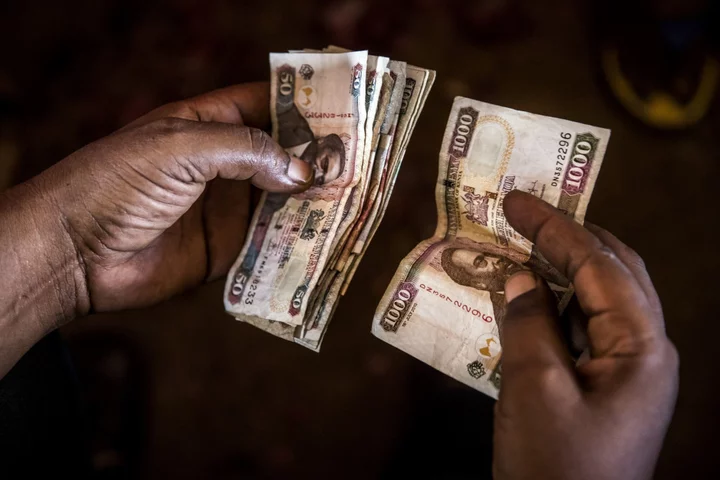Kenya is considering options including a potential buyback of part of a $2 billion bond due next year, according to people familiar with the matter.
Chris Kiptoo, the principal secretary of the National Treasury, declined to confirm the possible debt repurchase, but said the country is in talks with advisors and reviewing other alternatives. “We have many options,” he said in an interview. “At this point, we don’t have a position.”
If Kenya does decide on buying its bonds, it may tap into $1 billion received from the World Bank, proceeds from a syndicated loan and other funds from development banks and the International Monetary Fund, one of the people said, asking not to be identified because the talks are private.
A buyback would allow Kenya to take advantage of low prices. The dollar bond, maturing in June 2024, was issued in 2014 at a yield of 6.9%, but currently trades around 13%, so a buyback on the secondary market at current prices would imply a substantial saving for the government.
The bond was trading at 94.7 cents on the dollar on Friday, down from 111.8 cents in March 2021.
Kenya’s debt burden has been a focal point for investors as the country faces dollar shortages as a result of skyrocketing energy and food import bills. With central bank hard currency reserves standing at just $7.5 billion, some investors have been nervous that it would be forced into a debt restructuring, following other African nations including Ghana and Zambia.
READ: IMF Chief Calls Kenya ‘Innocent Bystander’ in World’s Debt Shock
Kenyan President William Ruto’s administration is targeting narrowing the budget deficit to 4.4% of gross domestic product for the fiscal year starting July, compared to an estimated 5.8% this year. The authorities plan to achieve that partly by ramping up tax revenue and easing the debt burden.
“The government essentially has two choices: some cocktail of market operations and fresh issuance to handle next year’s bullet, or drawing down on reserves,” said Connor Vasey, an analyst at Eurasia Group. “The former is clearly preferable to the latter.”
--With assistance from Srinivasan Sivabalan and Alex Nicholson.
(Updates with comment from analyst in the last paragraph)
Author: Adelaide Changole, Sujata Rao and David Herbling

